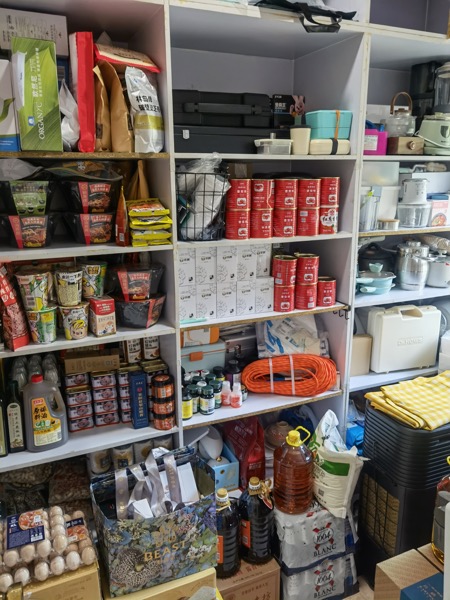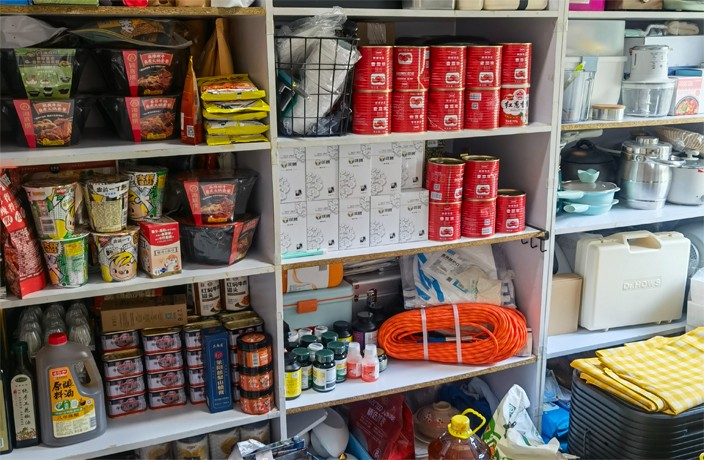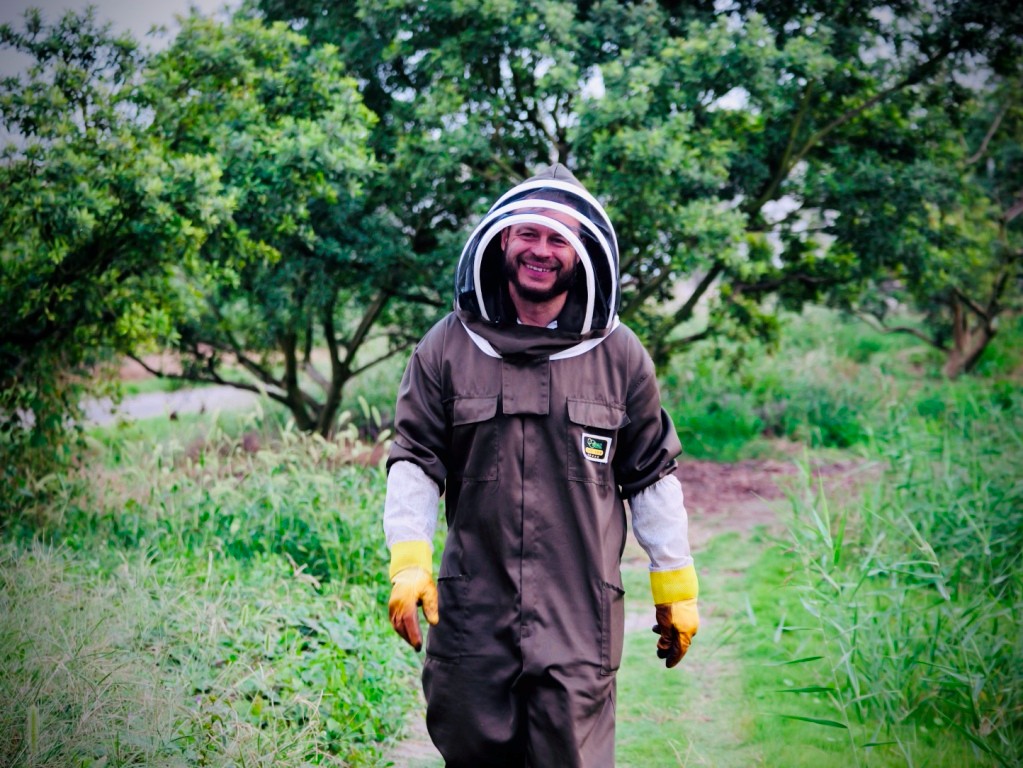Shanchen, who requested that we protect his identity, is sitting at home mindlessly scrolling through his phone when a sudden sense of dread sweeps over him. It’s happening again.
News media are all reporting the same thing; a respiratory disease is infecting people in Wuhan, the provincial capital of Hubei, and has already begun spreading to new parts of the country.
It’s January 2020 and although there isn’t much information on what would later become known as COVID-19, red flags are going up for Shanchen. He was a college student when SARS ran a rampage in Southern China. He’s lived through it once before and knows what he needs to do.
Over the following days, Shanchen manages to snap up necessities: bottled water, sanitizer, masks and nearly 1,000 kilograms of rice and flour. He also orders several types of anti-influenza drugs from pharmacies, including Lotus flower plague repellent capsules, or Lianhua Qingwen, a TCM drug that would later be used in China to treat COVID-19.
“Hoarding should be a daily habit,” Shanchen says. “Not only because of the pandemic, but the world is changing. Now more than ever, people feel a level of uncertainty towards the world.”
Shanchen Xiansheng (@山辰先生) is a blogger on Xiaohongshu, or Little Red Book, China’s version of Instagram, with more than 8,000 followers. It was by accident that he became a ‘prepper blogger.’ One post he shared about his understanding of preparedness has generated more than 5,000 likes since it was published on April 10.
“You need to think first and prepare in advance,” the father of a 3-year-old says. “It is not about saving money but keeping risks at bay from your family.”
A prepper is someone who gathers materials and makes plans for a whole manner of uncontrollable events in advance. Preppers can range from the rational (like those who ensure they have enough stocks in the event of a snap lockdown) to the outrageous. There are groups in America preparing for the end of the world and the collapse of civilization as we know it.

Shanchen's supplies. Image via @山辰先生
Although there is limited data on the precise number of preppers here in China, Shanchen says roughly half of his followers abide by his rules and prepping lifestyle.
A 2021 study suggested roughly 45% of Americans – or about 115.6 million people – say they spent money preparing or spent money on survival materials over the previous 12 months. A figure undoubtedly affected by the pandemic.
Preppers don’t simply use the home as a warehouse for canned food and toilet paper rolls. “The one thing you need to prepare the most is your physical condition,” Shanchen says. “Money is not going to solve everything. There are things that you can’t buy. You can buy a toolbox, but you can’t buy the skills needed to use what’s inside.”
Another quirky yet meticulous side of Shanchen is that at the beginning of every year, he backs up all work-related files and emails into a folder on his hard drive. He refers to it as his ‘pocket.’ He has followed this annual ritual since he entered the workplace nearly 20 years ago.
“I think this comes from a place of insecurity about the internet era that we are living in,” he says. “I don’t trust cloud drives. They are not safe and you may lose all your archives.”
Shanchen also runs a group chat on Xiaohongshu where people share hoarding tips. In his mind, making quick decisions based on the changing situation can be a lot of fun. “Hoarding materials is about developing bottom-line thinking. Don’t wait until a crisis happens to act,” he says.
The stress of not having enough necessities during lockdown is so real that even those who hate clutter and prefer minimalism have changed lifestyles.
“People say if you have lived a maximalist life will you be able to live a minimalist life,” says Zxy, a 32-year-old minimalist blogger with more than 4,200 followers on Xiaohongshu.

A blog post by @ZXY
One post she published in May stood out as an exception to her overall simplistic composition aesthetics. A staged photo features all sorts of groceries, including 20 rolls of toilet paper, laundry detergent, disinfectant, sanitary pads, a tube of toothpaste, face cleanser, sunscreen, body wash, two cartons of milk and some blueberries.
The caption reads: “During special times, it is necessary to have some basic items in store. You can stockpile moderately based on an item's duration, expiration date and demand."
Zxy (@Zxy on Xiaohongshu) used to be obsessed with stockpiling beauty products. She would fill several large drawers with cosmetics, many of which ended up expiring. “I was a busy buyer during China’s 6.18 and 11.11 shopping bonanzas,” she says. “But after I embraced minimalism, I realized that there are some good deals during regular days. You don’t need to hoard.“
“You may experience some fleeting joy when you buy something, but I think that’s superficial,” she says. “It doesn’t make you relax. A minimalist life is relaxing, and you're not burdened by too many items. What you own is what you need. Items are to serve you, not the other way around.”
Zxy lives with her husband in Nanjing, Jiangsu province. Seeing Shanghai (which is only 270km away from Nanjing) under lockdown for months prompted her to stockpile necessities in the event of an emergency. What makes Zxy unique is that she finds a middle ground between minimalism and hoarding.
“Supplies are more durable than we think, so there’s no need to panic buy,” Zxy says. “I will only stockpile supplies for the next six months, at most. Even if a lockdown does happen, it shouldn’t be that long.”

COVID-19 neccessities. Image via @ZXY.
In November 2021, the Chinese Ministry of Commerce accidentally started a “panic buying” frenzy. They issued a notice that suggested families stock up on food in case of emergencies. However, the Chinese newspaper Economic Daily called on the public not to misread the notice and overreact. They said the advice was simply meant to “complement the national emergency system in the long run” in an article that was published shortly after.
Most recently, the Shanghai lockdown has spurred the circulation of various versions of “hoarding lists” or survival guides on Chinese social media platforms.
Laoyao, a digital media content creator who lives in a 51-square-meter apartment in Beijing, with a dog and three cats, attributes her hoarding behavior to a bandwagon effect. “When everyone is hoarding, it is justifiable for you to do the same,” she says.

Laoyao, another 'prepper infuencer.' Image via Laoyao
“My friend in Shanghai sent me different hoarding lists for reference,” Laoyao elaborates.
When Beijing urged residents to stay at home and rolled out city-wide nucleic acid testing to cut community-level transmissions from May to June, “it felt like every Beijinger had a friend in Shanghai telling them how to hoard,” she says.
Many people in China have been left frustrated when panic buyers snap up all the groceries when there are the smallest of rumors of even a single COVID-19 case. “Food buying helps us feel in control,” a Guardian article quoted Harvard epidemiologist Karestan Koenen as saying.
Panic buying is naturally thought to originate from a “fear of missing out” (FOMO) mindset. But don’t be mistaken, the people we interviewed are preparing for emergencies. They are not those rushing to supermarkets at the last minute and fighting over a cabbage. They got their supplies months ago.
If you’re unsure what to have in reserve in the event of a lockdown, Shanchen says to get bottled water, food, flour and rice and condiments, like salt and oil. For Zxy, sanitary wipes and toilet paper should also be on the list. Laoyao is a pet owner so she strongly advises getting pet food.
Realistically, if you don’t have all these items on hand, you’re more than likely going to be fine. Even though Shanghai's woes aren't far behind us, citywide lockdowns are not that common anymore as authorities aim to limit lockdowns to individual communities or streets.
From the highly transmissible COVID-19 BA.5 omicron subvariant to the ongoing Russia-Ukraine conflict, our cell phones are constantly bombarding us with shocking news headlines. As a result, the need to feel prepared is arguably more prevalent than ever. While “preparedness lists” may differ from one person to another, the goal remains constant —provide for ourselves and our loved ones and hope we aren't found wanting.
[Cover image via Shanchen]





















0 User Comments